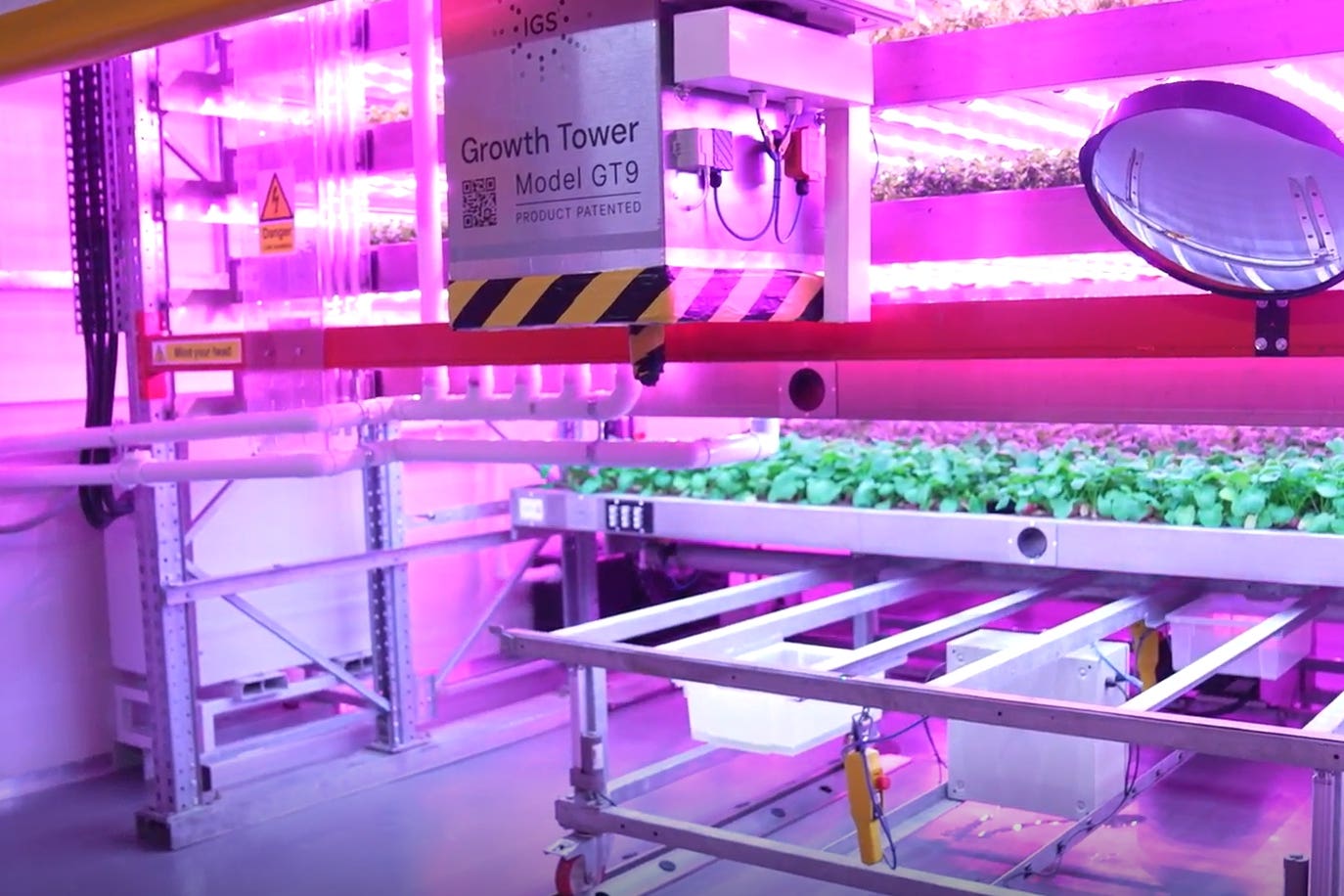Vertical farm unveiled to grow crops and reduce water use in extreme climates
Being built in Dubai, it will feature hundreds of 12-metre growth towers spread over a vast area.

Your support helps us to tell the story
From reproductive rights to climate change to Big Tech, The Independent is on the ground when the story is developing. Whether it's investigating the financials of Elon Musk's pro-Trump PAC or producing our latest documentary, 'The A Word', which shines a light on the American women fighting for reproductive rights, we know how important it is to parse out the facts from the messaging.
At such a critical moment in US history, we need reporters on the ground. Your donation allows us to keep sending journalists to speak to both sides of the story.
The Independent is trusted by Americans across the entire political spectrum. And unlike many other quality news outlets, we choose not to lock Americans out of our reporting and analysis with paywalls. We believe quality journalism should be available to everyone, paid for by those who can afford it.
Your support makes all the difference.A vertical farm has been showcased at Cop28 by a UK firm to help farmers in the Middle East grow crops and reduce water usage.
The “gigafarm”, launched by the ReFarm group of companies working with Edinburgh-based Intelligent Growth Solutions (IGS), can grow more than 3,000 tonnes of produce per year, and will be built in Dubai.
The farm combines hundreds of 12-metre growth towers capable of sustaining two billion plants each year with an organic food waste recycling system.
The 87,000 square-metre site, expected to be fully functional by 2026, will support the UAE’s move towards decarbonising food production, replacing 1% of the country’s fresh produce imports, and is said to be 98% more water efficient than growing crops in a field.
More than 250 varieties of plants, seedlings and saplings, from salads, herbs and leafy greens to vegetables, can be grown on the vertical farm.
Food waste will be recycled on-site by black soldier fly larvae, with by-products including organic compost used in traditional agricultural practices, animal feed for replacing unsustainable fish meal and soy oil, and water for use in the vertical farming towers.
The technologies on site will also recover up to 90% of ammonia sulphate from wastewater for use in plant fertilisers.
Dubai-based ReFarm – set up in the UAE by SSK Enterprise and Christof Global Impact – is using food waste to make a fertiliser and soil which can help crops grow in extreme climates like the Middle East, and IGS has partnered with it to construct the vertical farm.
Oliver Christof, chief executive of Christof Global Impact, said: “We take the food waste from the client, we turn it into three products – one is water, one is organic compost or fertiliser, and one is animal feed.”
He said the compost or fertiliser will go to local farms to produce various crops.
He added: “The water we produced out of the food waste goes into a vertical growth tower or a vertical farm, so we don’t use any fresh water at all.
“Everything’s extracted 100% from waste, and then we grow within that growth tower various products again, which are more challenging to grow in that climate outside or outdoors.
“The region also uses a lot of desalinated water, which is very unsustainable. The less we use, the better it is for the environment. Our technologies support all those elements. One of the technologies actually reduces water usage by 80% or more.”
Dave Scott, IGS founder, said: “One of the big advantages of these machines is you’re not fighting with the outside world and the extremes are becoming more and more prevalent.
“All the supply chain steps of the food industry can be very wasteful, so when the food is produced, when it is transported, and when it comes to our fridge when we buy it.
“All these fluctuations can be dramatically reduced by using the technologies that you’ve seen today.”